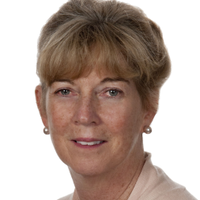Before you watch this webinar
Enhancing your learning experience begins with understanding you better. Collecting data enables us to tailor our educational content specifically for our audience. Discover more about how we handle your information in our Privacy Policy.
Event
Symptom control, management and getting over COVID-19 for PwP
Our sponsor

This activity has been supported by sponsorship from and Bial. The sponsor has had no control over the educational content of this activity.
Topics
- Case studies and personal experience of COVID-19 with PwP
- Recovery is possible for PwP who have had COVID-19
- What the papers say on post COVID-19 and importance of rehabilitation
Summary
Case studies and personal experience of COVID-19
Annette shared her recent experiences of having been redeployed to work on a COVID ward (2:19) and her slides are available to support this summary.
Annette's slides
- The fastest learning curve was managing the technology required for monitoring and medication, including Nerve Centre, NEWs, E-meds and more.
- The thing that is the same is the patient care, which is very rewarding and all about individual people. Doing this behind the barriers created by PPE was challenging; not being able to smile clearly, or hold someone’s hand were difficult.
- She talked through NEWs scores (7:40) as can be seen on her slides
- Case study 1 (9:33) – a gentleman with Parkinson’s. Annette looks at his stats, symptoms, and goes through her plan to support him.
- Loose stools and delirium have been very common symptoms seen on the wards.
- Case study 2 (13:20) – had had Parkinson’s for over 15 years, with DBS in. (His wife was also in the hospital in another bay on the ward too).
- In this case the gentleman deteriorated and the plan needed to alter. Later, he needed to have end of life care discussions and support managing his agitation and discomfort. He died peacefully.
- Case study 3 (18:19) – assessment and initial plan made. 6 days later, the gentleman was found to be Cdiff+ which added infection control into the planning. His COVID-19 has passed and he should be discharged soon.
- Signs to look for (20:56) – Very sudden dropping off of oxygen, high levels of delirium, signs of sepsis and an agreed ceiling of care.
- Particularly for Parkinson’s, worsening dyskinesia could be related to infection, worsening dyspnoea and impaired cough were raised.
Deep brain stimulation and COVID-19
Alison shared her findings of those working with people with deep brain stimulation during COVID-19 (23:34), and her slides are available to support this summary.
Alison's slides
- Case study 1 – Alison highlighted Antonini and Chaudhuri (2020)’s paper (24:16), noting that approaches to managing people with Parkinson’s have altered since this paper was written, particularly in intensive care.
- Alison went through specific elements of care for those with DBS during care for those with COVID-19 (26:27) including battery checks and recharging, and gradual switching from DBS to medication where battery changes are not possible.
- She also highlighted challenges for those with DBS during the pandemic who do not have COVID-19 including keeping patients informed, ensuring delays for appointments are kept to a minimum.
- Alison gave an update on the status of DBS services generally during the pandemic including using video and telephone consultations, highlighting that these services are still available and to use them as needed. (29:17)
- Alison highlighted the prevalence of patients coming out of ICU having delirium, dysphagia, anxiety and stress, and noted that diarrhoea and nausea is an added challenge in maintaining the appropriate medication levels in patients.
Case study presentation
Louise shared a case study of a gentleman with progressive supranuclear palsy PSP who has made a remarkable recovery from COVID-19 (32:19)
- He has had PSP for two years and does well but falls regularly. A slide details the specifics of the case.
- He became distressed and confused when given a private bed, and needed support to use aids to contact his family.
- The biggest challenge in his recovery has been the fatigue and tiredness.
- Louise shared an overview of findings from all her patients with Parkinson’s who have made a recovery. (35:45)
- She notes that all have noted that there have been no marked changes in their Parkinson’s but that irrelevant to age, the tiredness and fatigue has been the biggest challenge in recovery.
- She highlights the loss of local exercise groups and rehabilitation is having an impact on their recovery.
What the papers say on post COVID-19 and the importance of rehabilitation
Fiona shared what papers are saying on post-COVID-19 and importance of rehabilitation. Her slides expand on this summary. (40:03)
Fiona's slides
- She initially shared findings across older people generally. Loneliness is an exacerbating element which impairs recovery.
- She highlighted the paper ‘hidden sorrows’ (Helmich et al 2020) which a separate webinar addressed previously.
- COVID-19 has helped to highlight the person-centred approach needed to rehab, yet Fiona notes the challenges of meeting these rehabilitative needs in a remotely-delivered context and where local exercise and movement classes are unavailable. (47:44)
Questions
Questions from webinar attendees were discussed. These included:
- Louise responded to the question of whether people with Parkinson’s are more at risk of developing, or of severity from, COVID-19. (5:00)
- Fiona responded to a question regarding providing outpatient services to patients who are at high risk. (51:26)
- Alison discussed alternative plans developed for those needing apomorphine or duodopa therapies at present, and those on DBS. (54:23)
Additional information: Videos on pulmonary prehabilitation and rehabilitation which are relevant for all people during the pandemic are available to follow, and to develop or redevelop resilience and strength in the respiratory system.
Our Parkinson’s COVID-19 webinars are available on SoundCloud:
soundcloud.com/neurologyacademy
Our sponsor

This activity has been supported by sponsorship from and Bial. The sponsor has had no control over the educational content of this activity.
Chair
 Patsy Cotton
Patsy CottonAdvanced Nurse Practitioner Movement Disorders/Parkinson's, NHS Greater Manchester Neurosciences Centre
Speakers
 Prof Annette Hand
Prof Annette HandProfessor of nursing – clinical academic, Northumbria University
 Louise Ebenezer
Louise EbenezerClinical nurse specialist for Parkinson’s disease, Cwm Taf Morgannwg University Health Board
 Alison Leake
Alison LeakeParkinson’s disease nurse specialist, St George’s University Hospitals NHS Foundation Trust
 Fiona Lindop
Fiona LindopSpecialist physiotherapist, University Hospitals of Derby and Burton NHS Foundation Trust
'The things you can't get from the books'
Parkinson's Academy, our original and longest running Academy, houses 23 years of inspirational projects, resources, and evidence for improving outcomes for people with Parkinson's. The Academy has a truly collegiate feel and prides itself on delivering 'the things you can't get from books' - a practical learning model which inspires all Neurology Academy courses.

